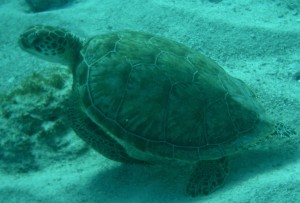 Jordan Nikoloyuk is the Sustainable Fisheries Coordinator of the Ecology Action Centre, a membership-based community environmental organization based in Nova Scotia, Canada. The Marine Issues Committee of the EAC was founded in 1995 after the collapse of the Atlantic Canadian groundfish stocks and works towards conserving and protecting marine ecosystems and maintaining sustainable fisheries and vibrant coastal communities.
Jordan Nikoloyuk is the Sustainable Fisheries Coordinator of the Ecology Action Centre, a membership-based community environmental organization based in Nova Scotia, Canada. The Marine Issues Committee of the EAC was founded in 1995 after the collapse of the Atlantic Canadian groundfish stocks and works towards conserving and protecting marine ecosystems and maintaining sustainable fisheries and vibrant coastal communities.
As part of its sustainable seafood work and through its Friends of Hector campaign – www.friendsofhector.org – the EAC has participated in many Marine Stewardship Council assessments for Atlantic Canadian fisheries and encouraged retailers to support certified fisheries. Jordan has written this guest post to share his recent experiences with a certification that has left the EAC and other conservation organizations wondering whether seafood certification can contribute to sustainable fisheries management in the long term, or if the conflict between keeping an eco-label rigorous on the one hand and expanding its market appeal on the other is just too difficult to manage. What do you think?
The best way to buy seafood responsibly is to read a sustainable seafood guide and ask your retailer the two big questions: where is this from and how was it caught? When getting these answers is tough, many people turn to eco-certifications and labelling. Despite some increasingly controversial certifications, the Marine Stewardship Council (MSC) is considered to be the most trusted and reliable label, but how many unsustainable fishery certifications will it take to ruin this credibility?
Last week, after lengthy and widespread opposition, the MSC approved certification of the Atlantic Canadian longline swordfish fishery, which catches 100,000 sharks and 1,400 endangered sea turtles every year. The Ecology Action Centre spent almost two years working to oppose this greenwashing. Now we are left asking: how can we promote sustainable fisheries with organizations the size of the MSC working against us? When a definition of sustainability is so weak that it lets the status quo continue, can this be seen as an effective ‘market-driven solution’?
Read More “Swordfish, certifications, and sustainable seafood” »



